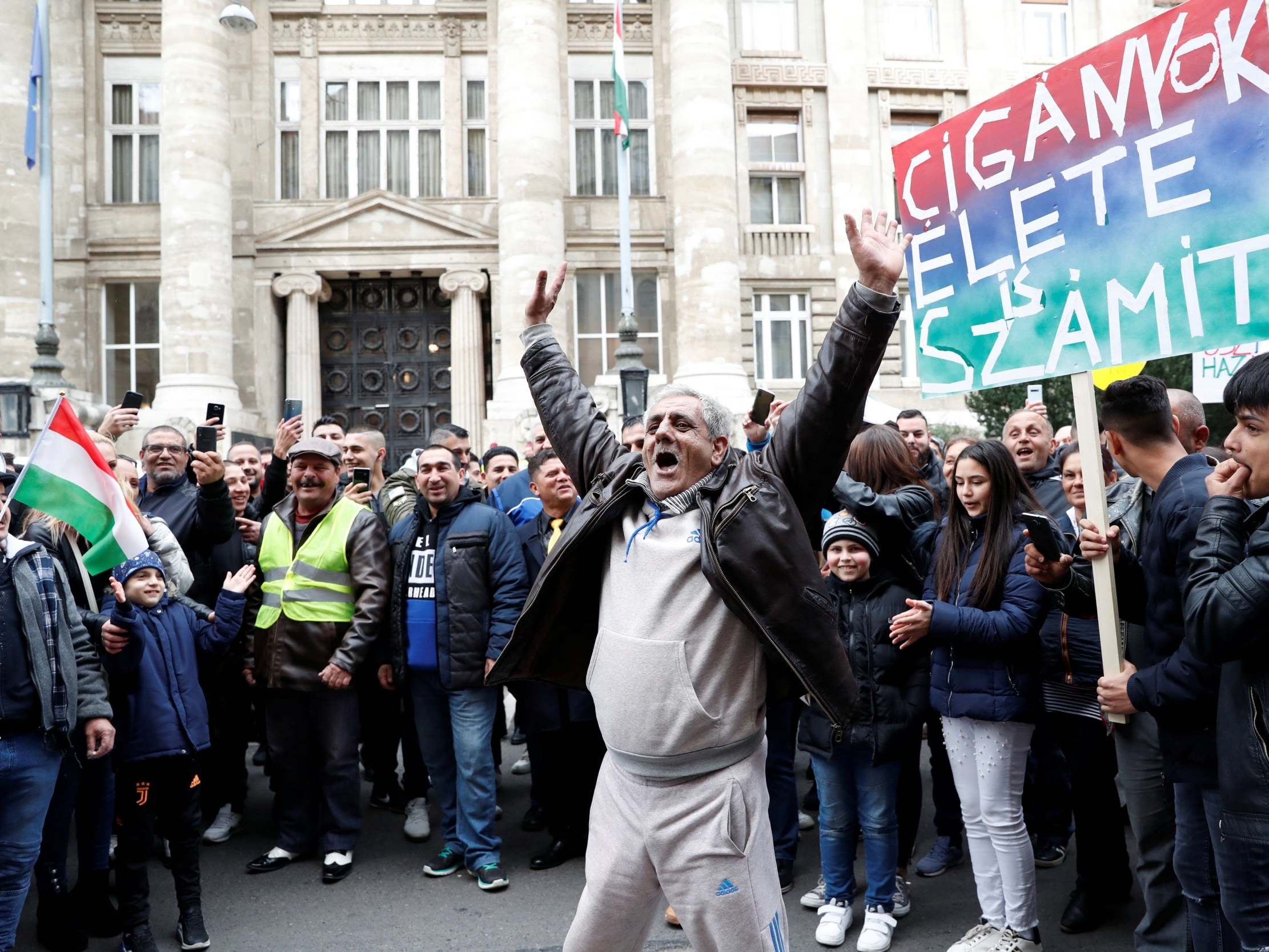Thousands of Hungarians protest against Orban's segregation of Roma children
Analysts say policy is motivated by need to bolster his voters' support

Your support helps us to tell the story
From reproductive rights to climate change to Big Tech, The Independent is on the ground when the story is developing. Whether it's investigating the financials of Elon Musk's pro-Trump PAC or producing our latest documentary, 'The A Word', which shines a light on the American women fighting for reproductive rights, we know how important it is to parse out the facts from the messaging.
At such a critical moment in US history, we need reporters on the ground. Your donation allows us to keep sending journalists to speak to both sides of the story.
The Independent is trusted by Americans across the entire political spectrum. And unlike many other quality news outlets, we choose not to lock Americans out of our reporting and analysis with paywalls. We believe quality journalism should be available to everyone, paid for by those who can afford it.
Your support makes all the difference.More than 2,000 Hungarians, including Roma families and civil groups, marched to parliament on Sunday to protest against the government's refusal to pay compensation to Roma children who had been unlawfully segregated in a school in eastern Hungary.
Nationalist prime minister Viktor Orban, who has come under fire from the European Union for his perceived erosion of the rule of law, suggested the state should disobey court orders to pay compensation to Roma children in the village of Gyongyospata and provide training instead.
Lower courts have ordered the state to pay damages in a lawsuit that has been dragging on for almost a decade. Hungary's top court is due to make a final ruling soon.
With the economy slowing, and his anti-immigration campaign losing steam, analysts say Mr Orban is seeking to mobilise his voters by targeting independent courts, the Roma minority, and the NGOs which help them.
“The meddling of the government in the Gyongyospata restitution issue is unlawful and violates the rule of law and the independence of the courts,” protest organisers said on Facebook.
Protesters held up banners saying “No one is above the law” and “The future cannot be built on hatred”.
Mr Orban has been in power since 2010 and his ruling Fidesz party is leading in opinion polls because of its anti-immigration stance.
However, the Fidesz party suffered a surprise setback in a municipal election last October, losing Budapest to the opposition.
Mr Orban has said “a court ruling citing segregation has stirred up public opinion by awarding large sums of money to some Roma residents,” adding that everyone must work to receive money.
He has also said “business-savvy lawyers” exploited overcrowded prison conditions to launch 12,000 lawsuits against the government for breaking EU prison standards. Senior lawyers said Mr Orban was undermining the rule of law.
The Fidesz party has said people connected with Hungarian-born billionaire George Soros helped Roma launch the lawsuits. The party has campaigned for years against Mr Soros, who promotes liberal causes.
By Sunday, close to 500 psychologists had signed a petition saying that the government campaign could fuel hatred between Roma and non-Roma. Roma make up 5-7 per cent of Hungary's population.
Robert Laszlo, an analyst at liberal think-tank Political Capital, said Mr Orban was trying to energise his base with his new campaign.
This will include a “national consultation” next month when questionnaires will be sent to millions of Hungarians on the issues of payments to Roma and compensation for prisoners.
Reuters
Join our commenting forum
Join thought-provoking conversations, follow other Independent readers and see their replies
Comments